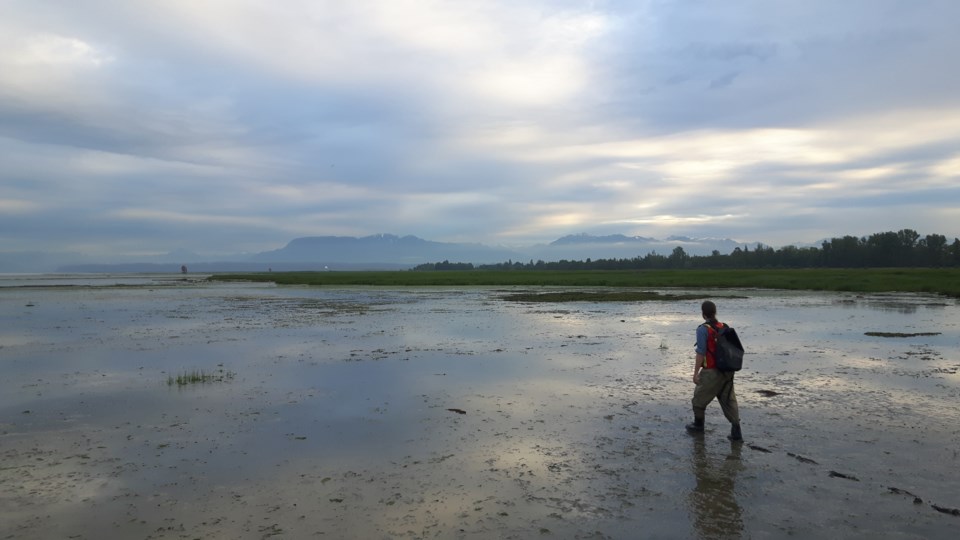Over the last 100 years, we have trained and dredged the mighty Fraser River to suit our needs, changing its natural processes. Soon, some of that change will be rolled back as part of a pilot project that hopes to bring benefits to fish, wildlife and people where the river meets the Salish Sea.
Ducks Unlimited Canada and partners are set to begin work on the Sturgeon Bank Sediment Enhancement Pilot Project to rebuild tidal marsh resilience and support coastal flood protection there. Beginning soon, crews will be repurposing sediment dredged from the river and placing it in key areas on Sturgeon Bank, situated next to Richmond, to restore those tidal marshes.
Fraser tidal marsh habitats are incredibly important for wildlife. Hundreds of millions of out-migrating juvenile salmon rely upon these brackish ecosystems as they transition to the ocean. In addition to being key to the BC economy and food supply, Fraser River Chinook salmon are the primary prey of endangered Southern Resident Killer Whales.Together with Boundary Bay, the estuary is also the most important overwintering area for waterfowl and shorebirds in Canada.
Estuary marshes reduce coastal flooding impacts, but science has shown that river training and dredging has deprived them of new sediments, preventing vertical growth that keeps ahead of rising sea levels. By conserving and restoring coastal marshlands, we can mitigate damages to ecosystems and communities at risk when storms and tides roll in.
The project is led by Ducks Unlimited Canada in partnership with Raincoast Conservation Foundation, Tsawwassen First Nation, and the Lower Fraser Fisheries Alliance. It is funded by the BC Salmon Restoration and Innovation Fund through Fisheries and Oceans Canada and the Province of BC, with additional funding from Tsawwassen First Nation and the Vancouver Fraser Port Authority.
Want to learn more? Visit our site or stop by Sturgeon Bank and take a look!
Editor’s note: Nature Notes is a monthly column produced by the Delta Naturalists Society and their other community partners.


